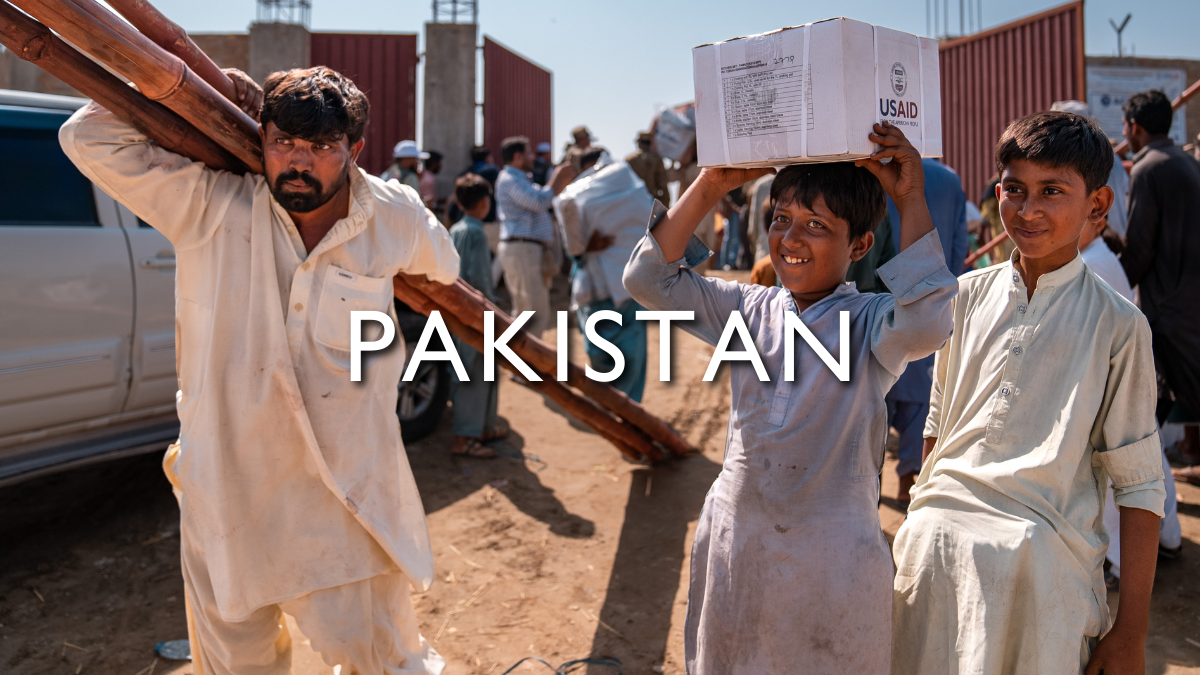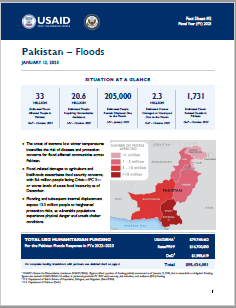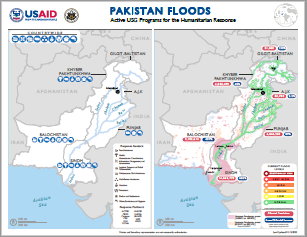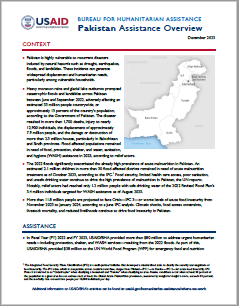
Pakistan, a country of more than 240 million people, is highly susceptible to natural hazards—such as drought, earthquakes, floods, and landslides—that can generate widespread displacement and humanitarian needs, as well as exacerbate chronic food insecurity and malnutrition, particularly among low-income households. Between June and September 2022, heavy monsoon rains and glacial lake outbursts prompted flooding and landslides across Pakistan, adversely affecting an estimated 33 million people, according to the Government of Pakistan (GoP). The incidents resulted in more than 1,700 deaths, injured nearly 12,900 individuals, displaced an estimated 7.9 million people, and damaged or destroyed more than 2.3 million houses, as well as millions of acres of agricultural lands and crops. In response, USAID provided $80 million in humanitarian assistance for the 2022 Pakistan flood response across fiscal years 2022 and 2023.
In fiscal year 2024, USAID provided nearly $16 million to address early recovery, disaster risk reduction, and resilience in Pakistan. This includes sustained, multi-year support to enhance the resilience of vulnerable populations through food security, nutrition, and livelihood strengthening activities, such as repair of water and sanitation infrastructure, treatment for children experiencing malnutrition, and cash assistance for the purchase of essential agriculture inputs. USAID partners also work alongside local, regional, and national GoP authorities to develop risk reduction plans and provide essential capacity-building assistance to establish early warning systems and rapid response mechanisms, as well as improve coordination and information sharing among emergency responders.



